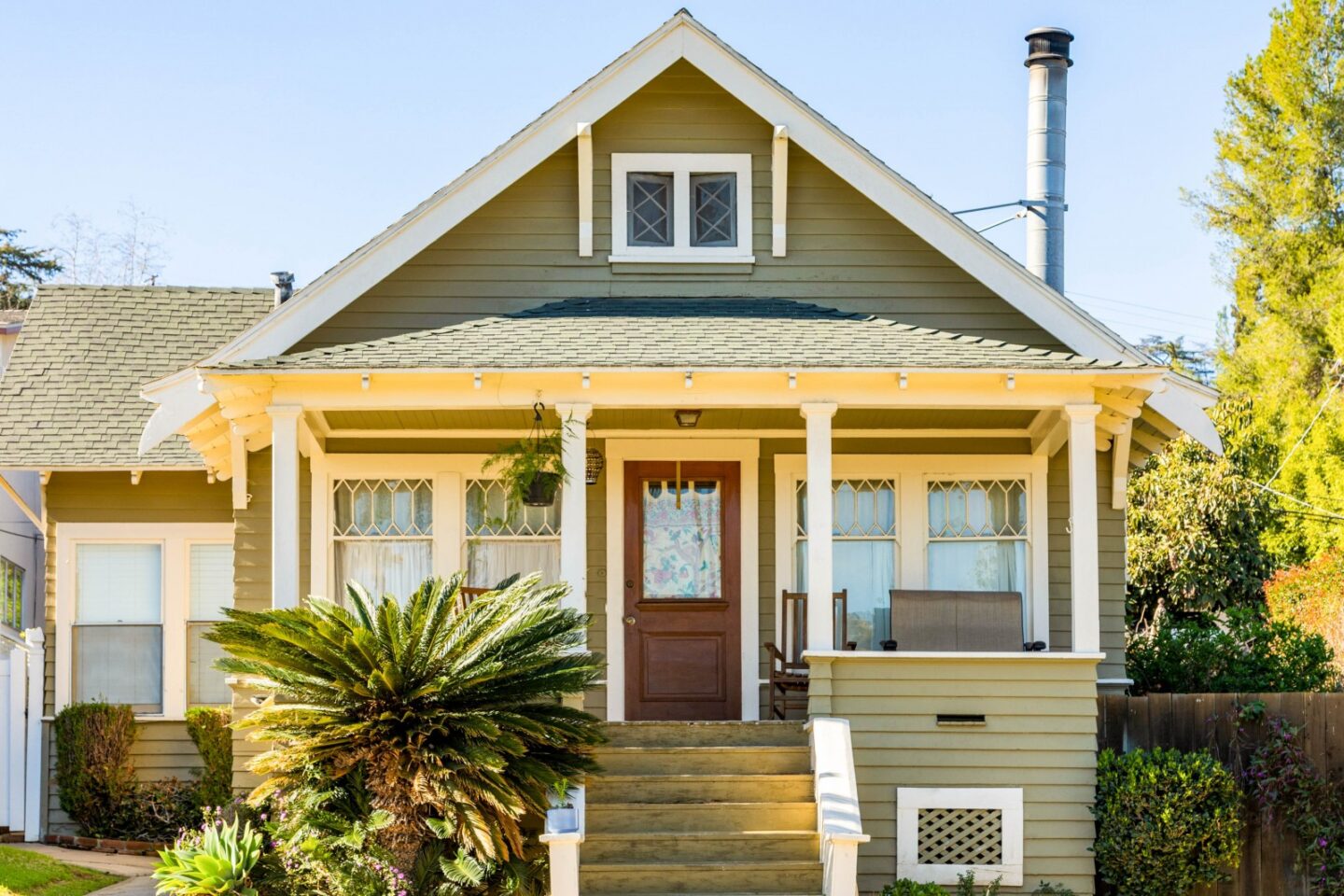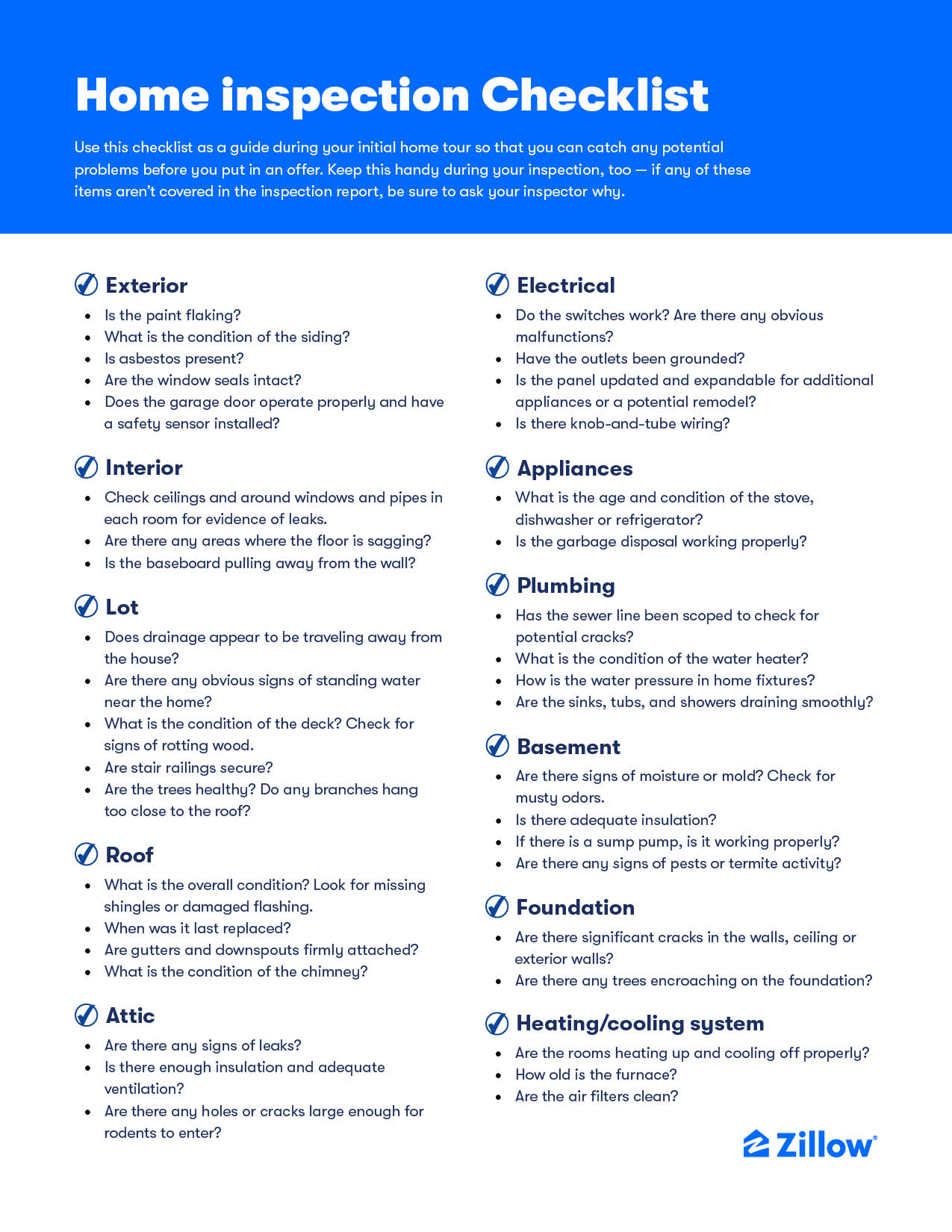
Home inspections are sometimes a major turning point in the home buying process. Knowing what to look for — whether you’ve found a place you like, or you’re still on the hunt — can prevent unpleasant surprises.

Inspection day is often one of the most exciting moments of home buying because it’s likely the first chance you'll have to go inside the home since you made your offer. But more importantly, it’s your opportunity to make sure you know what you’re getting yourself into when it comes to the condition of the home.
Home inspections can be reassuring, fun and exhausting all at the same time.
A home inspection doesn't just provide you with a list of problems you'll want to negotiate with the seller or, worse, something catastrophic that makes you back out of the deal altogether. It gives you a detailed report that acts as a new homeowner’s manual that includes a home maintenance schedule and checklist.
There are few things you can do ahead of inspection day to make sure you get the most out of the process. First, bookmark or download this checklist to bring along with you on inspection day. If you’re not ready to inspect a specific home yet, you can take the list to tours and open houses. Use it as a test for prospective homes to pass, or simply a way to spot red flags earlier in the process.
Then, keep reading below to find out more about how to prepare and what to expect when you’ve found a candidate for inspection.
You should hire a licensed, professional inspector to conduct a thorough inspection. How do you choose one? Your agent probably has suggestions, but you can also do your own research. Along with agents, lenders and other home pros, Zillow's Agent Finder tool has lists of inspectors with reviews. Get recommendations, study their websites, and ask for a sample report to make sure what they will produce is thorough.
You will want to be clear on exactly what is and isn’t included in the inspection price, which usually ranges from $300-$500 depending on the size of the home. Will they test for lead paint? How about asbestos in the ceiling tiles? Is that part of the basic inspection or will it cost more?
Start your search early, and have a couple of inspectors in mind. You’ll need to be sure you can get an inspection scheduled within your contract timeline, so if your first choice isn’t available, you need someone waiting in the wings.
You should start preparing for a professional inspection when you initially tour the home, before making an offer. This will give you an idea if there are any areas you want the inspector to pay special attention to. A good inspector will address these issues in the report you pay for. Use this checklist to help figure out what to look for, both ahead of time and in the final report. If any of these items aren’t covered in the inspection report, ask why.

Before your inspection day, you should also get a seller’s disclosure statement, which will help you identify any additional issues you want your inspector to look at. If they disclosed that they had a leaky window replaced or repaired, make sure that gets extra attention from your inspector.
Disclosure requirements vary by state and sometimes local jurisdictions, so ask your real estate agent if you have any questions about what is included. Disclosure typically comes in the form of boilerplate documents with a series of yes/no questions for the seller.
One thing to look for is whether any unpermitted work has been done. If so, you could be on the hook for bringing the house up to code should you ever remodel. Even if that’s not even remotely on your radar, unpermitted work needs to be carefully inspected, particularly electrical and plumbing work.
Block out an entire morning or afternoon for the inspection — it's important not to rush this process. Your agent can be present, along with the seller’s agent, who would be there to provide answers to any questions the inspector might have. During this time, follow along as much as you can. You don’t have to follow the inspector into the crawlspace — they bring protective clothing just for that.
Remember, you aren’t being a pest. You’re being a student. Along with identifying any potential problems, inspectors will explain your home’s systems and give you maintenance tips, which should also be in the final report, along with pictures.
What happens if your inspection comes back clean but you find problems after you move in? It depends. First, the inspection will only cover things the inspector can see without tearing down walls. The inspector won't claim responsibility for problems that are truly hidden, unless they missed what should have been obvious signs of a potential hidden problem.
Look carefully at your contract to understand whether the inspection company will pay for repairs related to issues they should have caught, but didn’t, or whether they will only refund your inspection fee.
Most importantly, take time to gain a clear understanding of what constitutes a major problem. A structural failure that leads to the home being condemned? It's probably worth talking with a lawyer. A leaky faucet? That’s just the joy of homeownership.